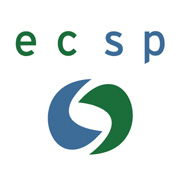
The Environmental Change and Security Program (ECSP) is one of several programs and projects that make up the Global Resilience and Sustainability Program at the Woodrow Wilson International Center for Scholars. ECSP was founded in 1994 to study the connections among environmental, health, population dynamics and their links to conflict, human insecurity, and foreign policy. [1]